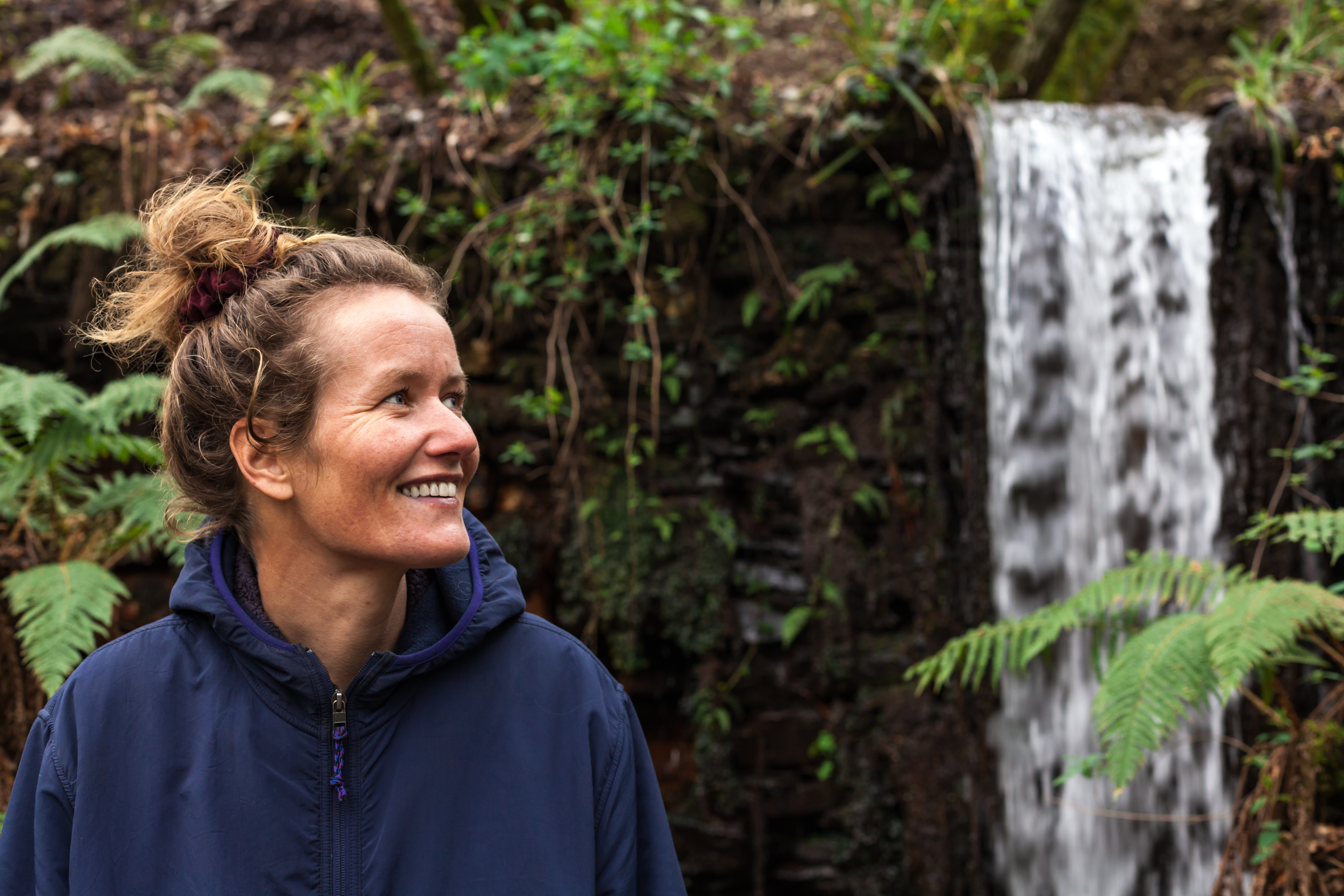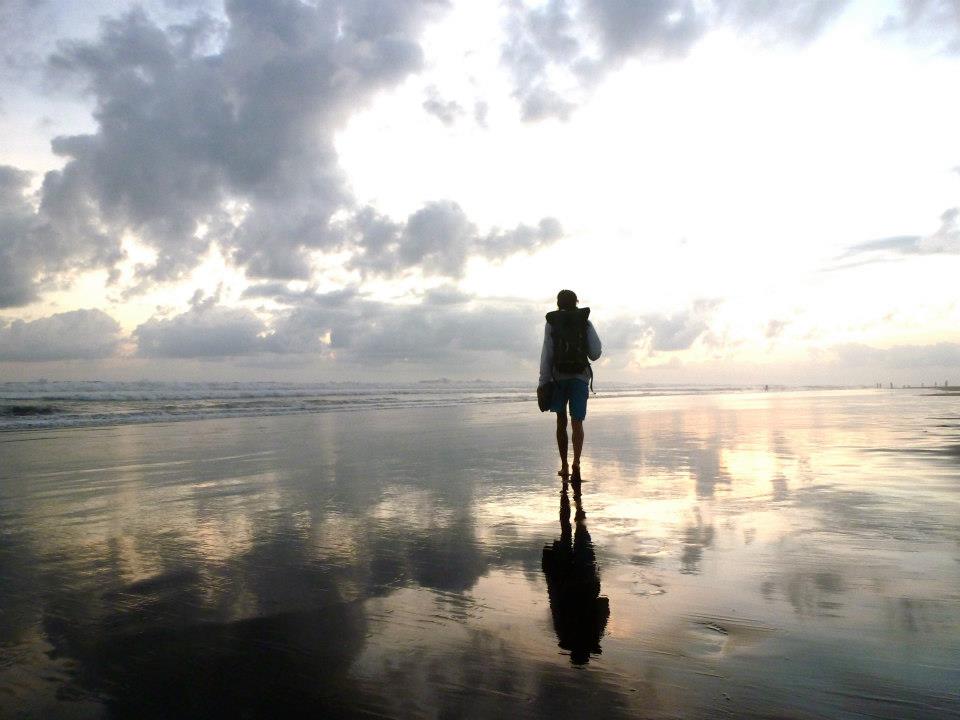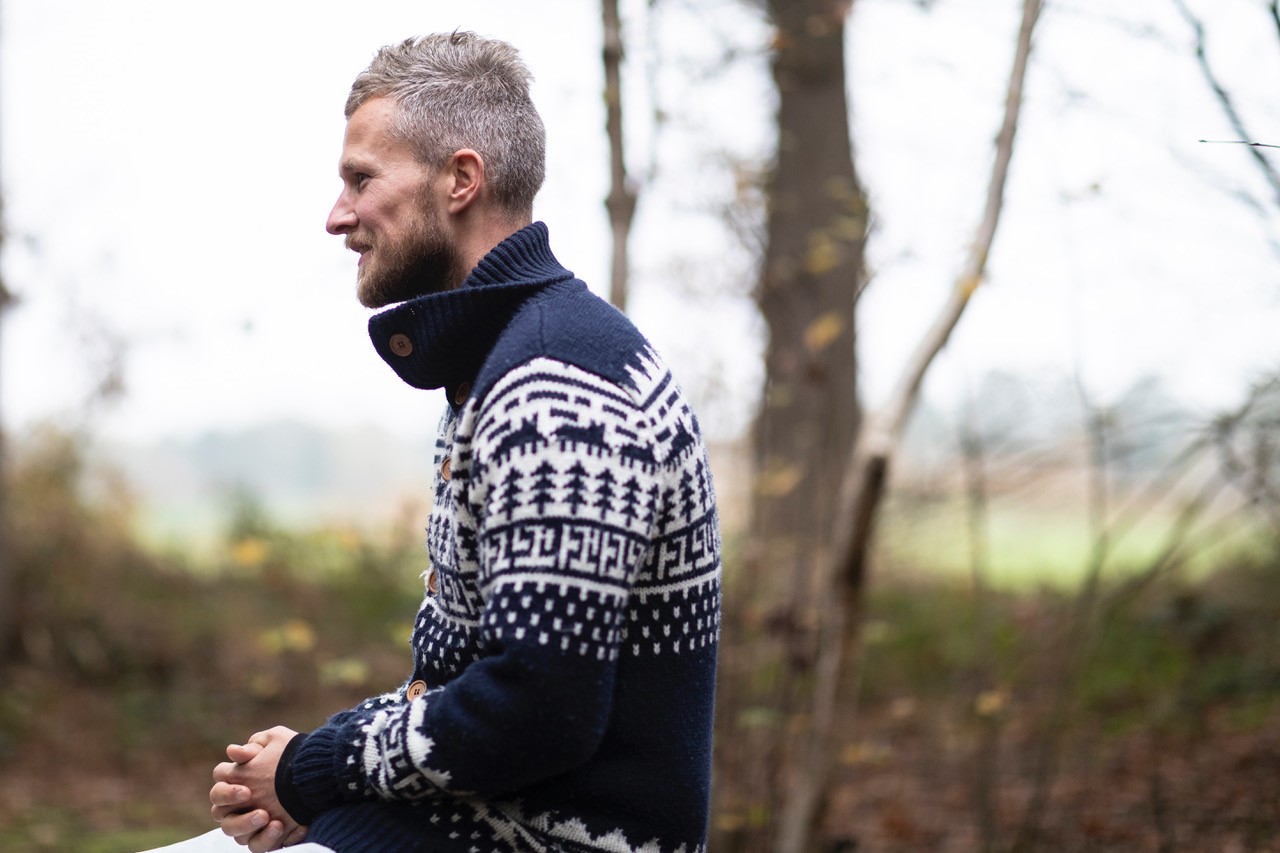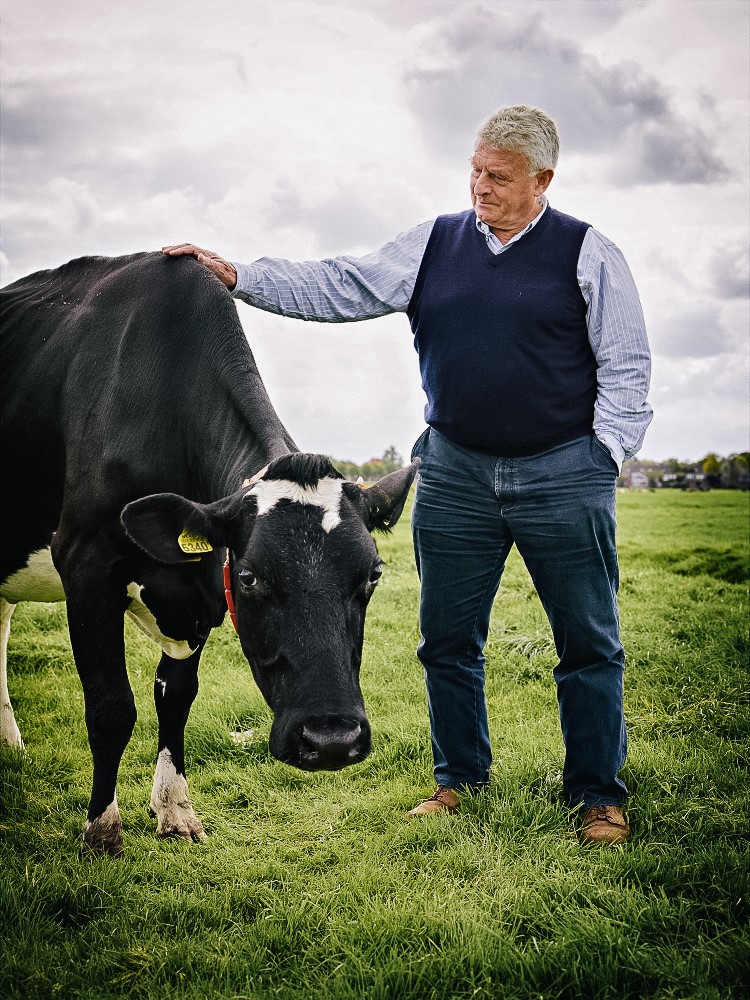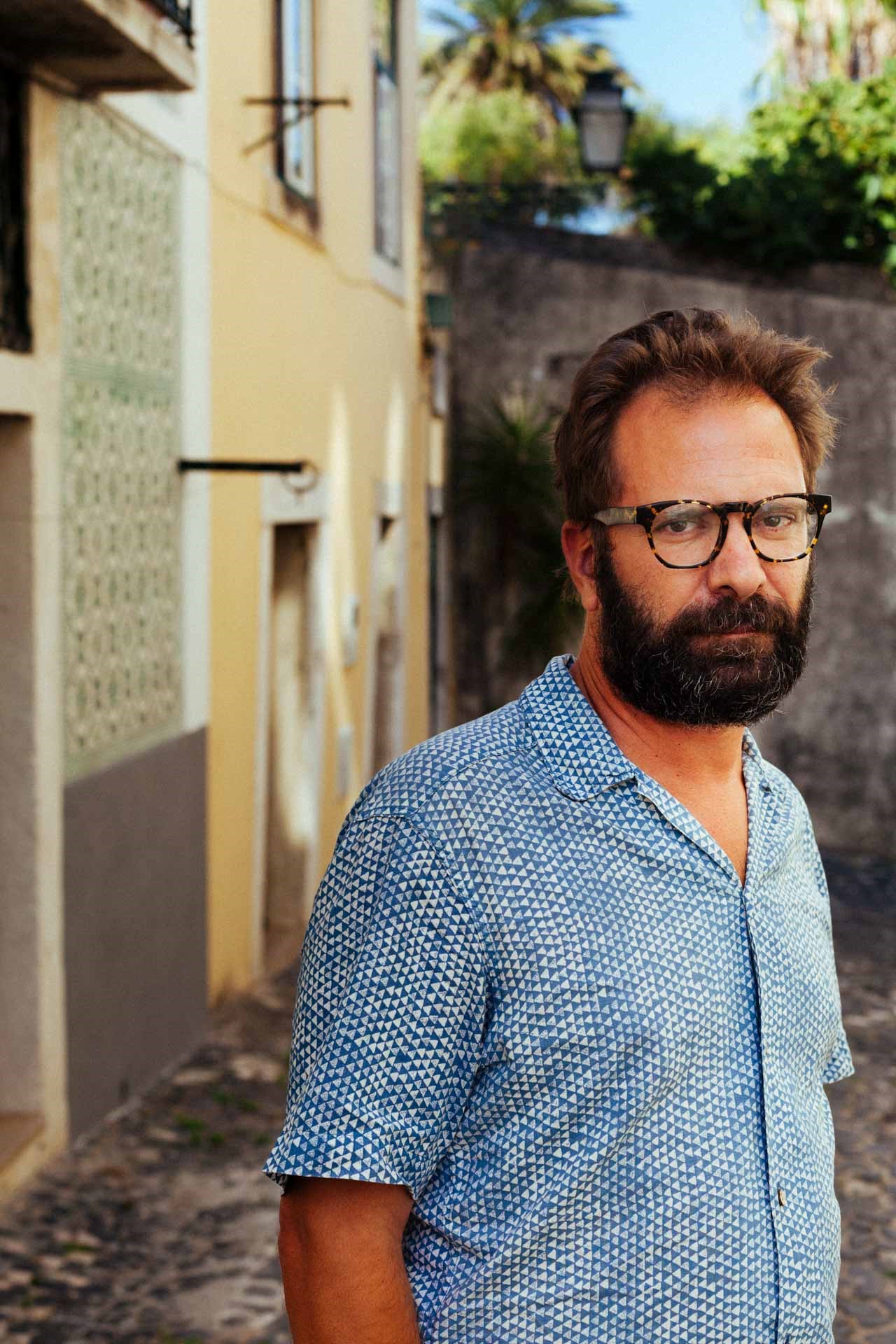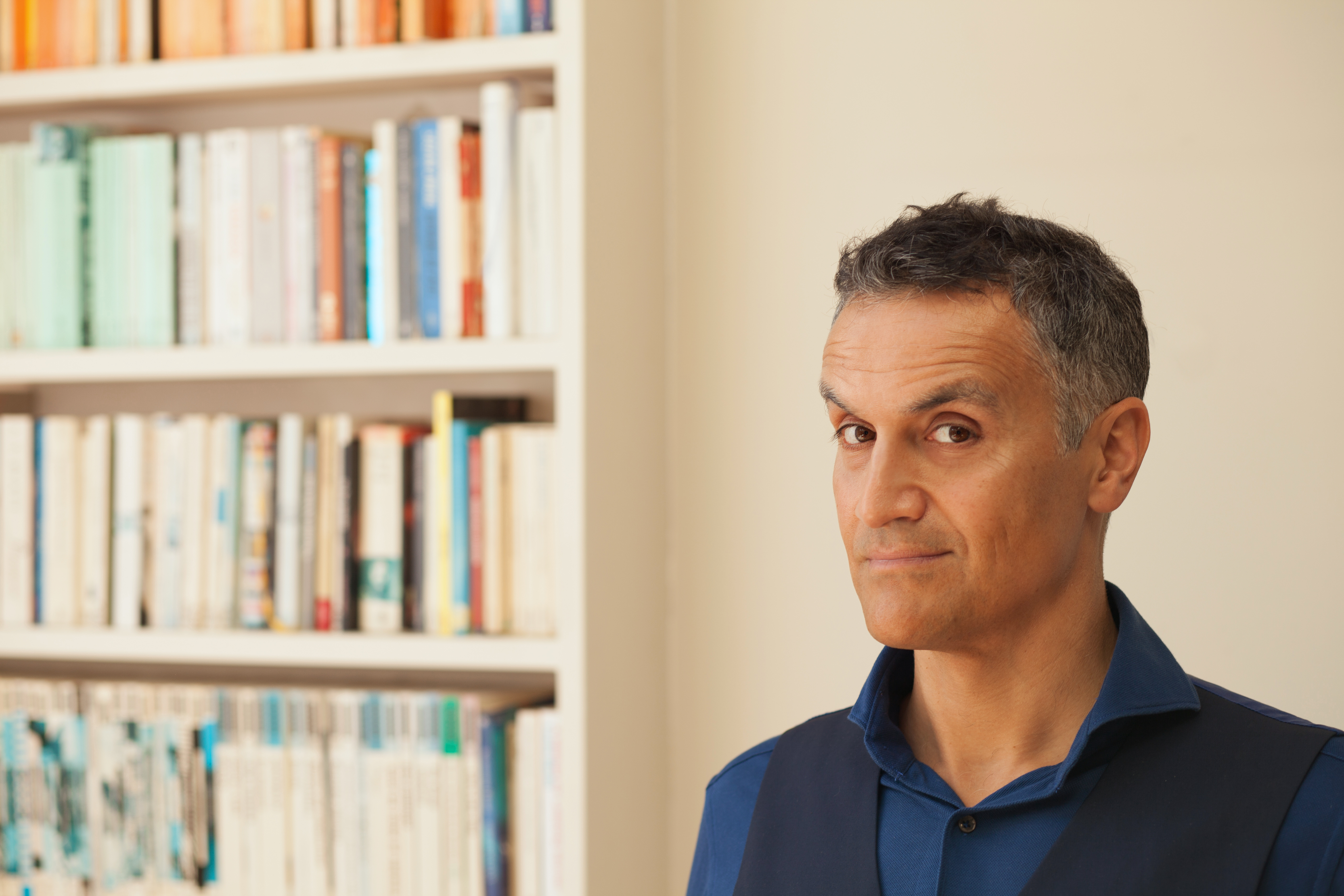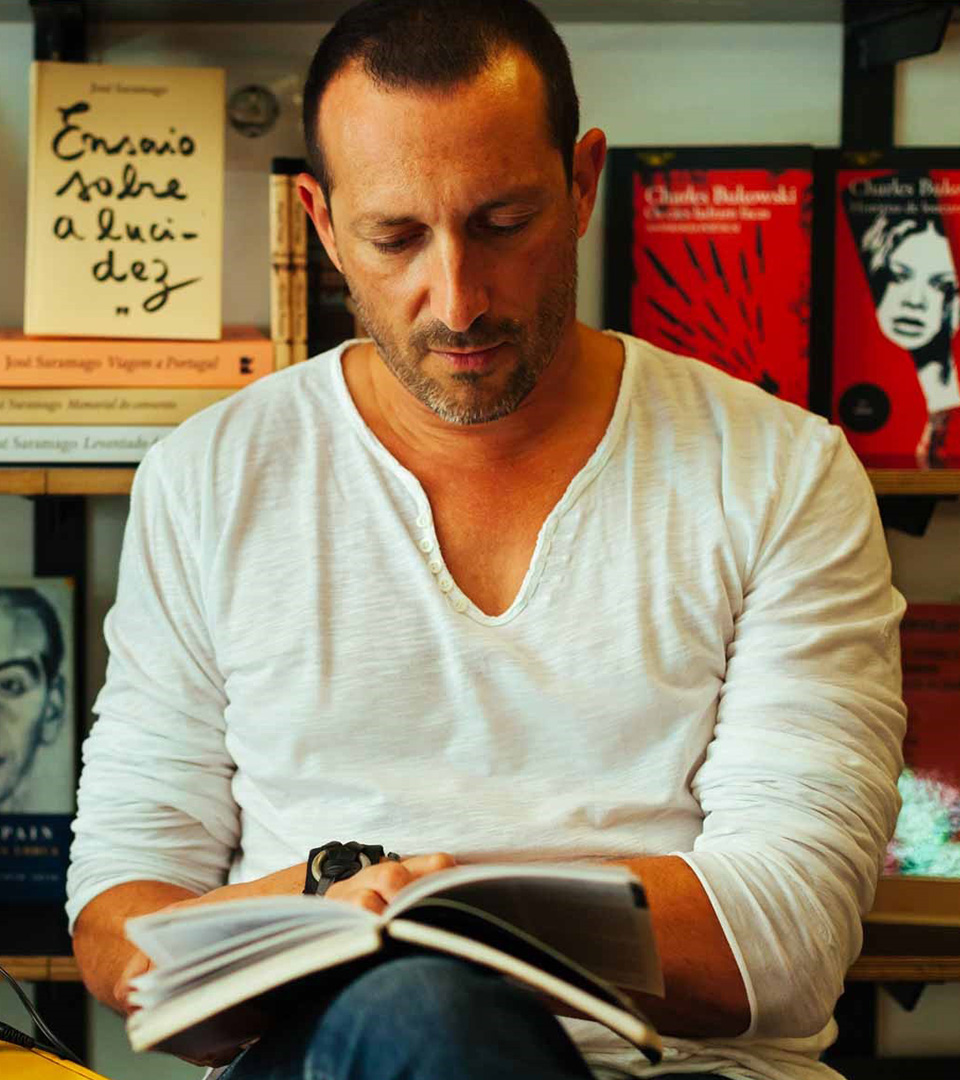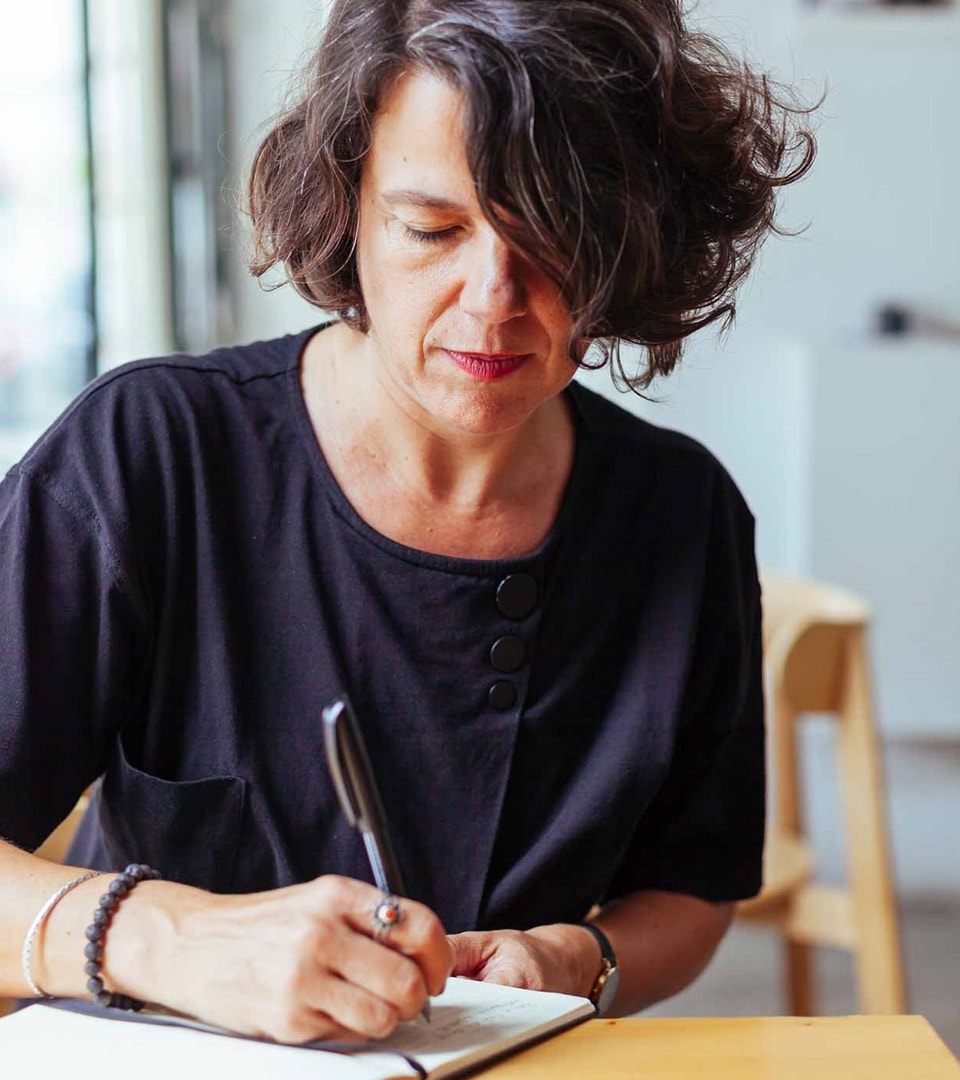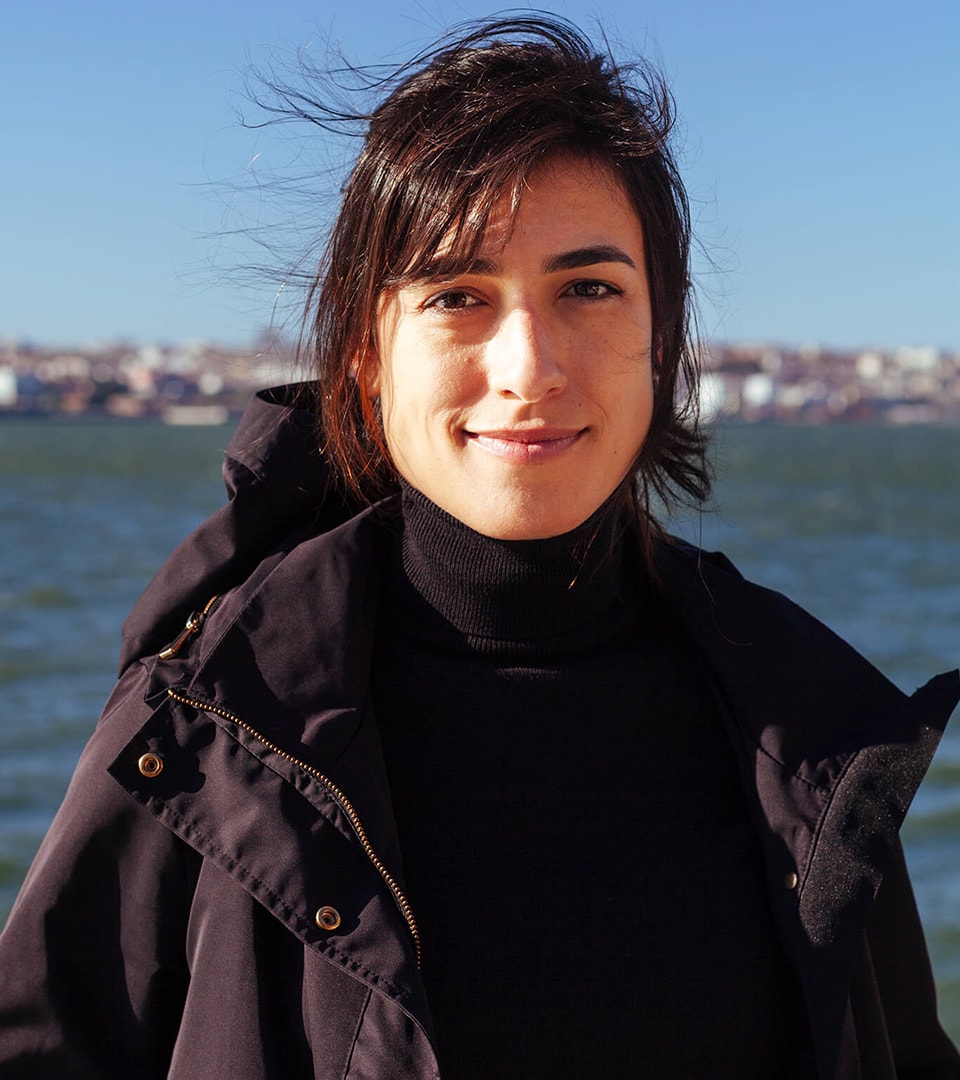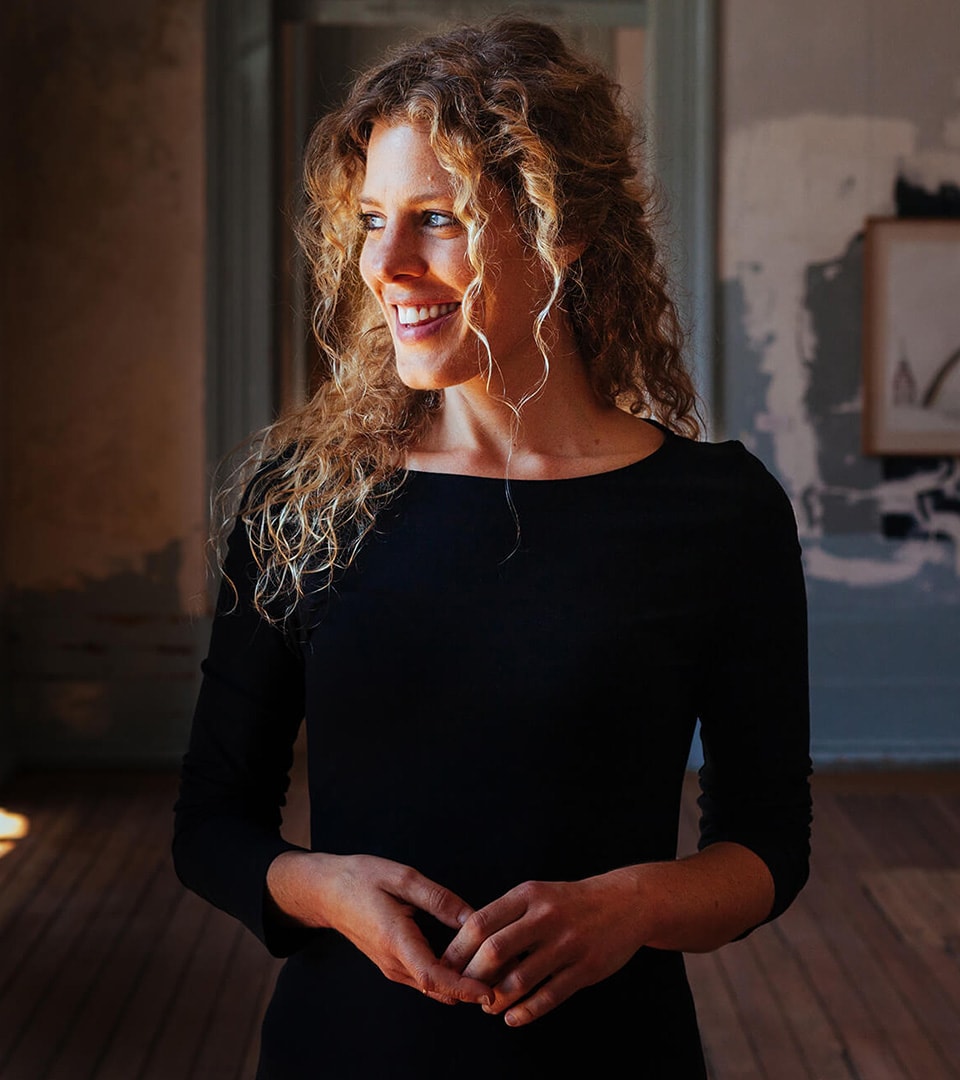Lynn Milou
From perfect Instagram personality to guardian of Planet Earth
Lynn, a city girl from Amsterdam who lived in Berlin and New York, decided four years ago to build her own little paradise in Portugal.
In A Vida Fausto, she goes beyond modernist ideas and materialistic visions. Serving the planet in the most positive way possible. “I want to enjoy life as it’s meant to be.”
"I want to enjoy life as it's meant to be."
"But what is luxury really? To me, it’s freedom and happiness."
"(...) we go with all-natural cycles and movements instead of our calendars."
"I want the world to come out of the mess it’s in and find the confidence to do it differently."
Where did the idea for A Vida Fausto come from? “In Portuguese, A Vida Fausto translates to the great, or luxurious life. But what is luxury really? To me, it’s freedom and happiness. With that in mind, I landed on the idea to build a place to demonstrate how a circular economy could work and grow. “
So what happens at this place? How do you demonstrate circularity? “During the first summer, I gave all kinds of courses here. Think permaculture, natural building, macrame. I saw that as a test case, then I would tackle the bigger things. But then the most destructive fire ever in the region came and destroyed it all. The people who came to learn and participate could not come anymore because I had no accommodation for them. Now we are rebuilding everything; a sleeping cabin, a tiny wooden house, a community kitchen. There are many, many dead trees that we can use to build anything.”
Besides your own big plan, you are also part of Wildlings. Can you paint a picture of that? “Wildlings is a collective of friends with equal values, we all have our own individual things going on, but together we collaborate on larger environmental projects to revive the land here. We’ve already bought a 5-hectare valley nearby. There’s a ruin on the land that we can convert into a place to stay and we want to set up a research farm, education center, cleantech playground, and a food lab there. We focus entirely on EPIC tourism. Unlike ecotourism, EPIC – which stands for Education, Participation, Inspiration, and Creation – is tourism where guests come to add meaning to their stay. Either by creating new designs, participating in reforestation projects and harvest days, or simply getting inspired by a different way of life that is more in harmony with nature. So, no cocktail in your hammock, but a much more meaningful journey. Because of our Wildlings publications, there is a huge demand. We can’t even handle the amount of e-mails! However, before we can host people, a few projects must be completed. I hope we can say “yes” to all those interested soon.”
Do people know what to expect when they come here? “I notice that many of my old city friends are always in need of peace and nature. Owing to this, they form a romanticized image of what it’s like here and bring 1000 questions with them. Especially in the beginning. People pass by, not knowing that this life is hard work. Because no, I don’t hug pigs all day. I am non-stop digging channels, weeding, and pulling eucalyptus out of the ground.”
Can you call this life slow? “I think slow is actually quite a crazy term. Everything goes very fast here. The only difference is that we go with all-natural cycles and movements instead of our calendars. What I always find interesting is that in the evolution of people we approach everything with a linear growth system: more, more, more. That is unnatural, in nature everything goes in circles. When I realized that, a lot fell into place. I’d rather replace the word ‘slow’ for ‘present’ because in my life here I pay much more attention. I spend a lot of time cooking because I find that very important, for instance.”
So you want a mindful, circular life. Does that also mean that you are self-sufficient? “No, due to the fires I didn’t get that far yet. I don’t have time to cultivate everything but above all, I really want to grow in the forest. It takes a few years before you can produce enough food with your own resources. However, within our (unintentional) community of approximately 100 eco-minded residents in the valleys here, we are able to become an autonomous community. We have a lot of the skills and personalities required to provide, for example, food, eco-building, health, and medicine.”
That sounds different from city life. What was your life like before? “When I was still living in Amsterdam, I was the ideal Instagram picture. I went to all the festivals for free, had loads of friends, a nice house. In the time that I lived in New York and Berlin, I developed a more critical view. That’s when I realized that capitalism doesn’t mean the best for us. I remember one night I was in Albert Heijn and saw a “pure and honest” logo, totally out of place. It made me so angry, it was the final push for me to drastically change my life. I started with the basics: food, home, energy. But as time went on, my plans became bigger and I worked my way up from there. And with those plans, I had to move to a country where someone who is not a farmer could survive in a climate that provides all the nutrition we need. That was Portugal. In one way or another, it all accelerated. It was the start of an adventure.”
What knowledge from your past life did you bring to Portugal? “I can do a little bit of everything, therein lies my strength. There are not many people here with a background such as mine, this means that I’m always busy. Fortunately, in my ten years of city life, I learned things that I can use now. The only difference is that the customer or topic is very different. In Amsterdam, I worked at Halal, a well-known film and advertising production house. First, as a project manager, later as an eco-manager because morally the advertising industry didn’t feel right any longer. It’s painful to see whole countries could be fed with the budgets that went to a stupid 40-second film.”
How can we make the world a better place? “I believe in power to the people: creating something different together, whether in the city or on top of the mountain. We just need to understand that the current system isn’t benefiting people and planet and change accordingly.”
Why do you still want this life so badly? “Despite being part of the perfect picture in Amsterdam, I was depressed and felt an overwhelming emptiness. Because of this, I started to deepen myself spiritually and suddenly a reality check hit me. I realized that I was part of something that I did not support. We are all made dependent on corporations that don’t act in our best interests nor that of our planet. We’re brainwashed into the idea that excessive consumption and the accumulation of material wealth is the highest achievable goal. I want the world to come out of the mess it’s in and find the confidence to do it differently. I know millions of people are doing the same all over the planet.”
Do you have less stress now than when you lived in the city? “The first year was especially magical but the last two years have been quite stressful and difficult. There hasn’t been much support from the government to rebuild our lives after the fires took our homes, farms and livelihood. Also, just like in the city, here too I’m busy with projects and with people coming and going. The difference now is that I determine how my life goes, which makes me deal with myself much more consciously. I monitor my energy and feel more balanced, something I couldn’t do when I lived in the city. Now stress feels more like an interesting challenge that I am in control of. But I have to say that when the fire swept the foundation out from under my feet has been the toughest challenge so far, to keep myself from going under. However, that doesn’t mean I won’t experience waves of deep anger and sadness towards the powers that be, about inequality, animal suffering, exploitation and abuse. Fortunately, I am now better equipped to consciously transmute these energies out of my system.”
What does your day look like? “People often ask me that, but there is actually no typical day. Everything goes according to the seasons. Now it’s raining and my actual plan of working outside isn’t going to happen. So instead I’m arranging all the online things. It might seem like only small adjustments but I wouldn’t call it a quiet life. From 8am to 8pm I usually work outside, then other things follow: grant applications, answering questions from journalists, maintaining the website, answering emails. In addition, because of the way things go in rural Portugal you can only look one week ahead. I really appreciate that, but it’s very difficult for the outside world. It’s the total opposite of the Amsterdam culture.”
You have made the choice to live this life. There will undoubtedly be people who read this, want it, but don’t know where to begin. How can they make the move? “This life is really not for everyone. Only if you really feel an urgent “yes” in your heart and not from your head, then it’s something for you. Of course, it’s extremely challenging, because many people think they cannot make the change. Those thoughts of ‘I can’t’ excuse your ego, they stop you. Though it’s interesting to investigate what underlies ‘I can’t’. What is your fear? If you grab it by the horns and throw it away, you can do anything. I am also reminded of my fears, but I know they are an illusion. I choose to trust my mind.”
It sounds like you are a very decisive person. What’s your first big plan for now? “Together with the local community, we’re going to plant 10.000 trees within 10 days. That sounds like a lot, but 100 people live here in the valley. Many of them are focused on ecosystem restoration. It is so important that native landscapes are reintroduced. Everyone can do that in their backyard. In this way, we’re not only making a beautiful patchwork of wild landscapes, but we’re also reducing the carbon level in the air, increasing biodiversity, restoring the natural water cycle and creating a habitat for all kinds of species that play an equally important role in keeping our ecosystem healthy and balanced. By understanding that we can all contribute towards ecosystem restoration by starting in our own backyards, is very empowering. Collectively we can make a huge difference without the need for any top-down regulations or for our governments to step in. We all individually have the power to reverse the damage done, by the choices we make and the actions we take.”
Let’s go one step further now: How do you see the ideal world? “My ideal world is non-violent, collaborative, and regenerative. The human species has evolved towards one that is highly destructive and we justify things like abuse, exploitation, and cruelty towards our own species and others, whether that’s physical or emotional. We are the dominant species on the planet and I like to see us move away from our destructive behavior that’s rooted in greed, separation, inequality, and control, towards one where we become guardians that respect, nurture and honor all life. Nature is a much more powerful being than we are and our planet will keep spinning without us, whether our species will continue to exist, is really up to us.”
Lynn, a city girl from Amsterdam who lived in Berlin and New York, decided four years ago to build her own little paradise in Portugal.
In A Vida Fausto, she goes beyond modernist ideas and materialistic visions. Serving the planet in the most positive way possible. “I want to enjoy life as it’s meant to be.”
"I want to enjoy life as it's meant to be."
"But what is luxury really? To me, it’s freedom and happiness."
"(...) we go with all-natural cycles and movements instead of our calendars."
"I want the world to come out of the mess it’s in and find the confidence to do it differently."
Where did the idea for A Vida Fausto come from? “In Portuguese, A Vida Fausto translates to the great, or luxurious life. But what is luxury really? To me, it’s freedom and happiness. With that in mind, I landed on the idea to build a place to demonstrate how a circular economy could work and grow. “
So what happens at this place? How do you demonstrate circularity? “During the first summer, I gave all kinds of courses here. Think permaculture, natural building, macrame. I saw that as a test case, then I would tackle the bigger things. But then the most destructive fire ever in the region came and destroyed it all. The people who came to learn and participate could not come anymore because I had no accommodation for them. Now we are rebuilding everything; a sleeping cabin, a tiny wooden house, a community kitchen. There are many, many dead trees that we can use to build anything.”
Besides your own big plan, you are also part of Wildlings. Can you paint a picture of that? “Wildlings is a collective of friends with equal values, we all have our own individual things going on, but together we collaborate on larger environmental projects to revive the land here. We’ve already bought a 5-hectare valley nearby. There’s a ruin on the land that we can convert into a place to stay and we want to set up a research farm, education center, cleantech playground, and a food lab there. We focus entirely on EPIC tourism. Unlike ecotourism, EPIC – which stands for Education, Participation, Inspiration, and Creation – is tourism where guests come to add meaning to their stay. Either by creating new designs, participating in reforestation projects and harvest days, or simply getting inspired by a different way of life that is more in harmony with nature. So, no cocktail in your hammock, but a much more meaningful journey. Because of our Wildlings publications, there is a huge demand. We can’t even handle the amount of e-mails! However, before we can host people, a few projects must be completed. I hope we can say “yes” to all those interested soon.”
Do people know what to expect when they come here? “I notice that many of my old city friends are always in need of peace and nature. Owing to this, they form a romanticized image of what it’s like here and bring 1000 questions with them. Especially in the beginning. People pass by, not knowing that this life is hard work. Because no, I don’t hug pigs all day. I am non-stop digging channels, weeding, and pulling eucalyptus out of the ground.”
Can you call this life slow? “I think slow is actually quite a crazy term. Everything goes very fast here. The only difference is that we go with all-natural cycles and movements instead of our calendars. What I always find interesting is that in the evolution of people we approach everything with a linear growth system: more, more, more. That is unnatural, in nature everything goes in circles. When I realized that, a lot fell into place. I’d rather replace the word ‘slow’ for ‘present’ because in my life here I pay much more attention. I spend a lot of time cooking because I find that very important, for instance.”
So you want a mindful, circular life. Does that also mean that you are self-sufficient? “No, due to the fires I didn’t get that far yet. I don’t have time to cultivate everything but above all, I really want to grow in the forest. It takes a few years before you can produce enough food with your own resources. However, within our (unintentional) community of approximately 100 eco-minded residents in the valleys here, we are able to become an autonomous community. We have a lot of the skills and personalities required to provide, for example, food, eco-building, health, and medicine.”
That sounds different from city life. What was your life like before? “When I was still living in Amsterdam, I was the ideal Instagram picture. I went to all the festivals for free, had loads of friends, a nice house. In the time that I lived in New York and Berlin, I developed a more critical view. That’s when I realized that capitalism doesn’t mean the best for us. I remember one night I was in Albert Heijn and saw a “pure and honest” logo, totally out of place. It made me so angry, it was the final push for me to drastically change my life. I started with the basics: food, home, energy. But as time went on, my plans became bigger and I worked my way up from there. And with those plans, I had to move to a country where someone who is not a farmer could survive in a climate that provides all the nutrition we need. That was Portugal. In one way or another, it all accelerated. It was the start of an adventure.”
What knowledge from your past life did you bring to Portugal? “I can do a little bit of everything, therein lies my strength. There are not many people here with a background such as mine, this means that I’m always busy. Fortunately, in my ten years of city life, I learned things that I can use now. The only difference is that the customer or topic is very different. In Amsterdam, I worked at Halal, a well-known film and advertising production house. First, as a project manager, later as an eco-manager because morally the advertising industry didn’t feel right any longer. It’s painful to see whole countries could be fed with the budgets that went to a stupid 40-second film.”
How can we make the world a better place? “I believe in power to the people: creating something different together, whether in the city or on top of the mountain. We just need to understand that the current system isn’t benefiting people and planet and change accordingly.”
Why do you still want this life so badly? “Despite being part of the perfect picture in Amsterdam, I was depressed and felt an overwhelming emptiness. Because of this, I started to deepen myself spiritually and suddenly a reality check hit me. I realized that I was part of something that I did not support. We are all made dependent on corporations that don’t act in our best interests nor that of our planet. We’re brainwashed into the idea that excessive consumption and the accumulation of material wealth is the highest achievable goal. I want the world to come out of the mess it’s in and find the confidence to do it differently. I know millions of people are doing the same all over the planet.”
Do you have less stress now than when you lived in the city? “The first year was especially magical but the last two years have been quite stressful and difficult. There hasn’t been much support from the government to rebuild our lives after the fires took our homes, farms and livelihood. Also, just like in the city, here too I’m busy with projects and with people coming and going. The difference now is that I determine how my life goes, which makes me deal with myself much more consciously. I monitor my energy and feel more balanced, something I couldn’t do when I lived in the city. Now stress feels more like an interesting challenge that I am in control of. But I have to say that when the fire swept the foundation out from under my feet has been the toughest challenge so far, to keep myself from going under. However, that doesn’t mean I won’t experience waves of deep anger and sadness towards the powers that be, about inequality, animal suffering, exploitation and abuse. Fortunately, I am now better equipped to consciously transmute these energies out of my system.”
What does your day look like? “People often ask me that, but there is actually no typical day. Everything goes according to the seasons. Now it’s raining and my actual plan of working outside isn’t going to happen. So instead I’m arranging all the online things. It might seem like only small adjustments but I wouldn’t call it a quiet life. From 8am to 8pm I usually work outside, then other things follow: grant applications, answering questions from journalists, maintaining the website, answering emails. In addition, because of the way things go in rural Portugal you can only look one week ahead. I really appreciate that, but it’s very difficult for the outside world. It’s the total opposite of the Amsterdam culture.”
You have made the choice to live this life. There will undoubtedly be people who read this, want it, but don’t know where to begin. How can they make the move? “This life is really not for everyone. Only if you really feel an urgent “yes” in your heart and not from your head, then it’s something for you. Of course, it’s extremely challenging, because many people think they cannot make the change. Those thoughts of ‘I can’t’ excuse your ego, they stop you. Though it’s interesting to investigate what underlies ‘I can’t’. What is your fear? If you grab it by the horns and throw it away, you can do anything. I am also reminded of my fears, but I know they are an illusion. I choose to trust my mind.”
It sounds like you are a very decisive person. What’s your first big plan for now? “Together with the local community, we’re going to plant 10.000 trees within 10 days. That sounds like a lot, but 100 people live here in the valley. Many of them are focused on ecosystem restoration. It is so important that native landscapes are reintroduced. Everyone can do that in their backyard. In this way, we’re not only making a beautiful patchwork of wild landscapes, but we’re also reducing the carbon level in the air, increasing biodiversity, restoring the natural water cycle and creating a habitat for all kinds of species that play an equally important role in keeping our ecosystem healthy and balanced. By understanding that we can all contribute towards ecosystem restoration by starting in our own backyards, is very empowering. Collectively we can make a huge difference without the need for any top-down regulations or for our governments to step in. We all individually have the power to reverse the damage done, by the choices we make and the actions we take.”
Let’s go one step further now: How do you see the ideal world? “My ideal world is non-violent, collaborative, and regenerative. The human species has evolved towards one that is highly destructive and we justify things like abuse, exploitation, and cruelty towards our own species and others, whether that’s physical or emotional. We are the dominant species on the planet and I like to see us move away from our destructive behavior that’s rooted in greed, separation, inequality, and control, towards one where we become guardians that respect, nurture and honor all life. Nature is a much more powerful being than we are and our planet will keep spinning without us, whether our species will continue to exist, is really up to us.”
Lynn Milou
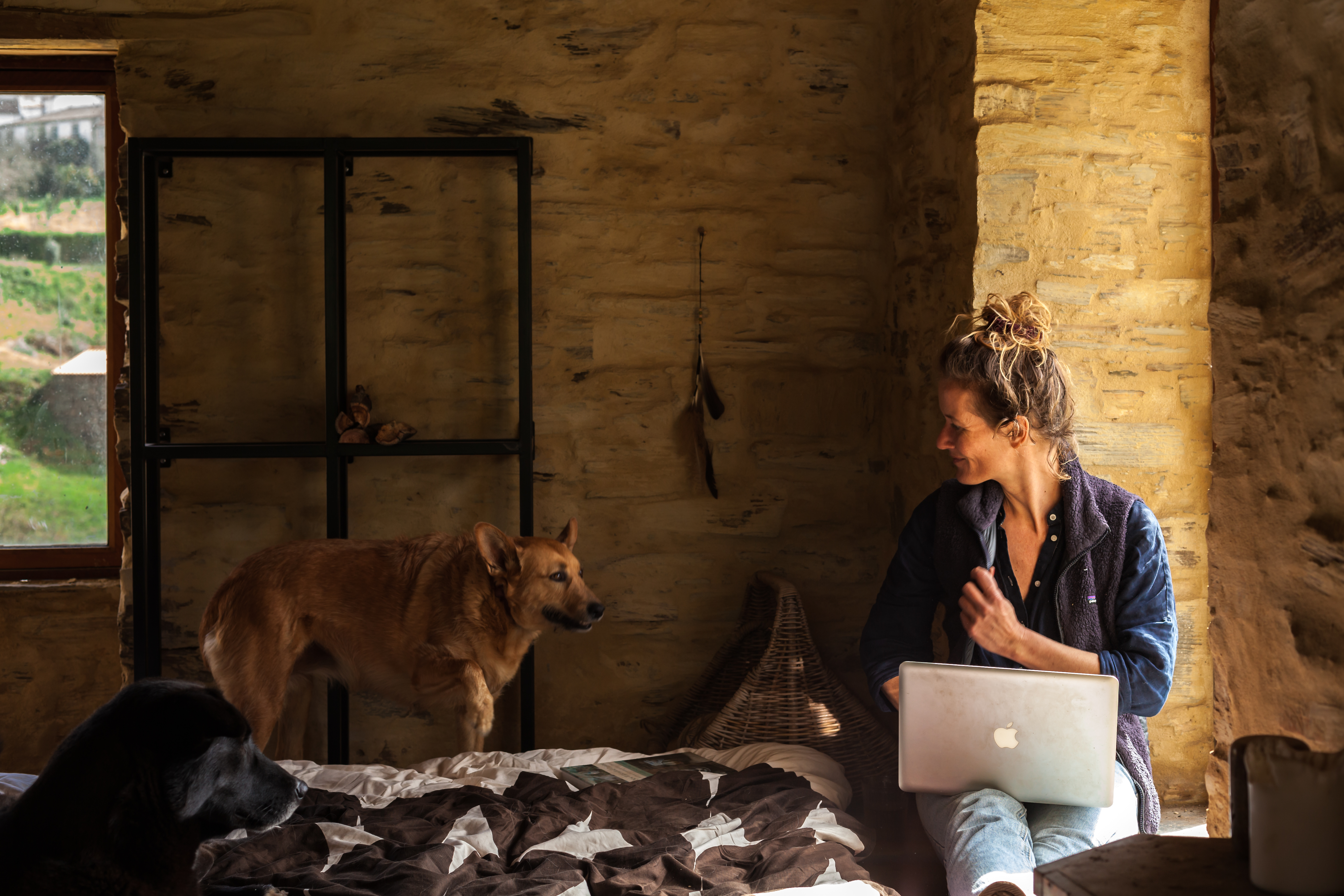
From perfect Instagram personality to guardian of Planet Earth
Lynn, a city girl from Amsterdam who lived in Berlin and New York, decided four years ago to build her own little paradise in Portugal.
In A Vida Fausto, she goes beyond modernist ideas and materialistic visions. Serving the planet in the most positive way possible. “I want to enjoy life as it’s meant to be.”
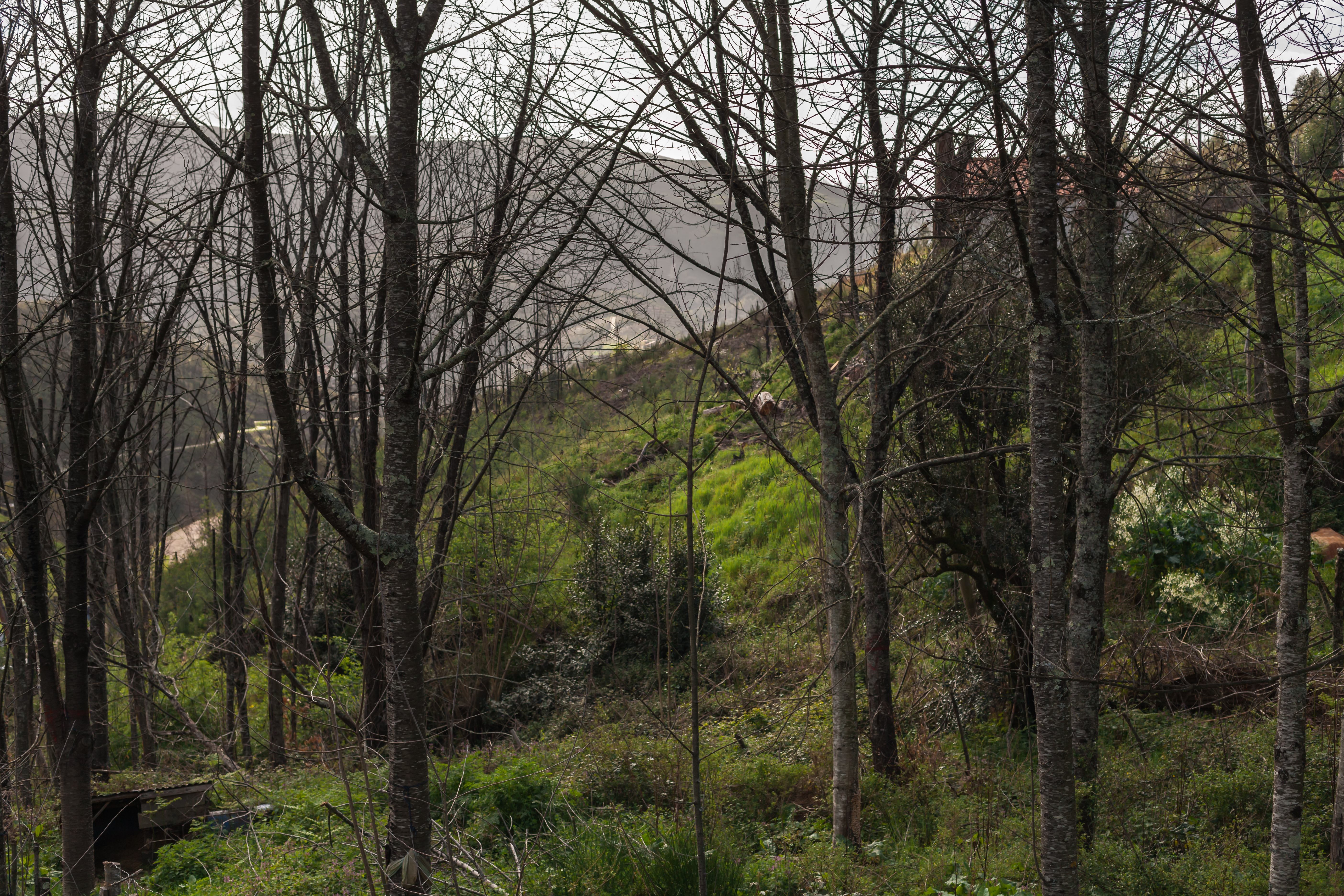
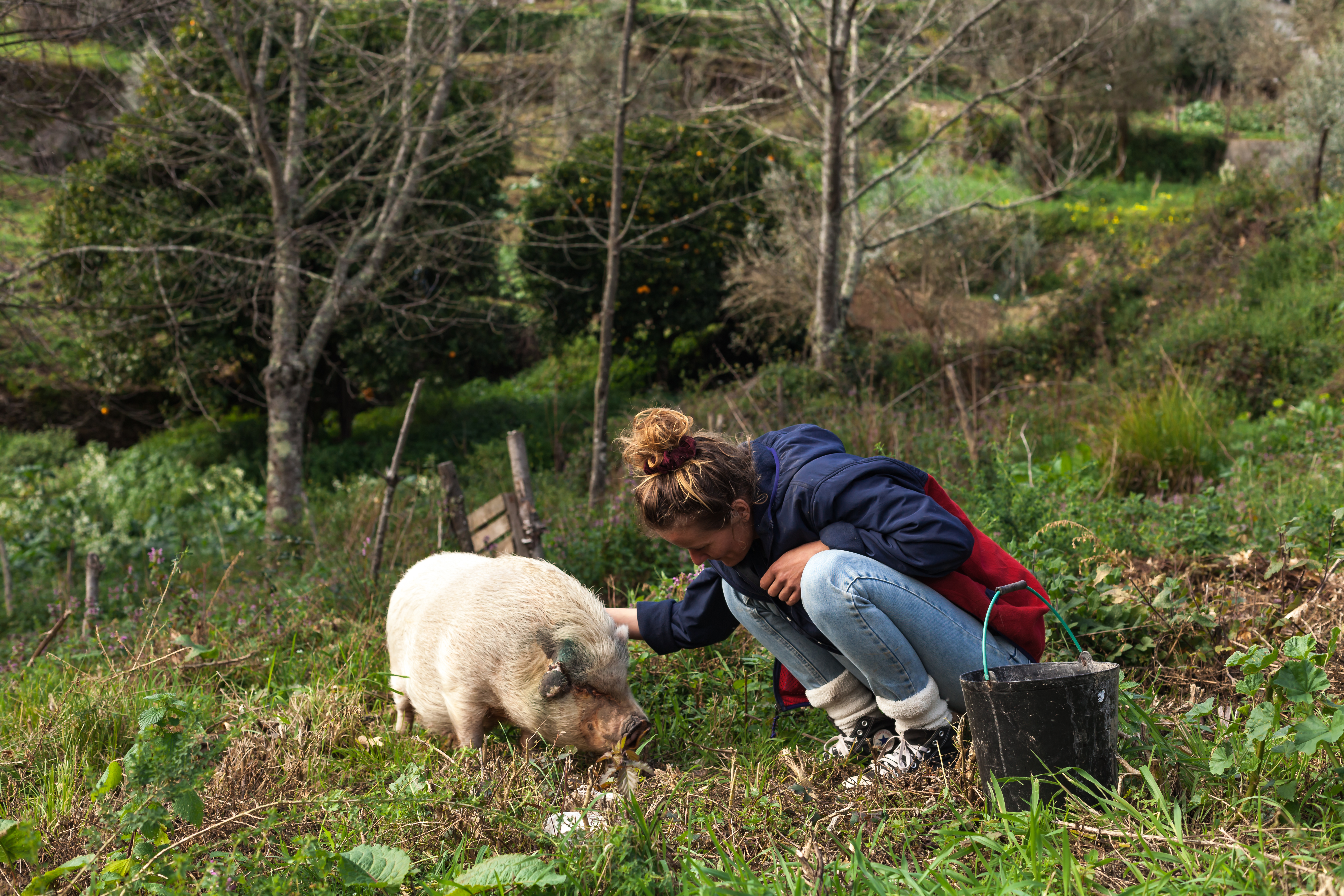
"I want to enjoy life as it's meant to be."
"But what is luxury really? To me, it’s freedom and happiness."
"(...) we go with all-natural cycles and movements instead of our calendars."
"I want the world to come out of the mess it’s in and find the confidence to do it differently."
Where did the idea for A Vida Fausto come from? “In Portuguese, A Vida Fausto translates to the great, or luxurious life. But what is luxury really? To me, it’s freedom and happiness. With that in mind, I landed on the idea to build a place to demonstrate how a circular economy could work and grow. “
So what happens at this place? How do you demonstrate circularity? “During the first summer, I gave all kinds of courses here. Think permaculture, natural building, macrame. I saw that as a test case, then I would tackle the bigger things. But then the most destructive fire ever in the region came and destroyed it all. The people who came to learn and participate could not come anymore because I had no accommodation for them. Now we are rebuilding everything; a sleeping cabin, a tiny wooden house, a community kitchen. There are many, many dead trees that we can use to build anything.”
Besides your own big plan, you are also part of Wildlings. Can you paint a picture of that? “Wildlings is a collective of friends with equal values, we all have our own individual things going on, but together we collaborate on larger environmental projects to revive the land here. We’ve already bought a 5-hectare valley nearby. There’s a ruin on the land that we can convert into a place to stay and we want to set up a research farm, education center, cleantech playground, and a food lab there. We focus entirely on EPIC tourism. Unlike ecotourism, EPIC – which stands for Education, Participation, Inspiration, and Creation – is tourism where guests come to add meaning to their stay. Either by creating new designs, participating in reforestation projects and harvest days, or simply getting inspired by a different way of life that is more in harmony with nature. So, no cocktail in your hammock, but a much more meaningful journey. Because of our Wildlings publications, there is a huge demand. We can’t even handle the amount of e-mails! However, before we can host people, a few projects must be completed. I hope we can say “yes” to all those interested soon.”
